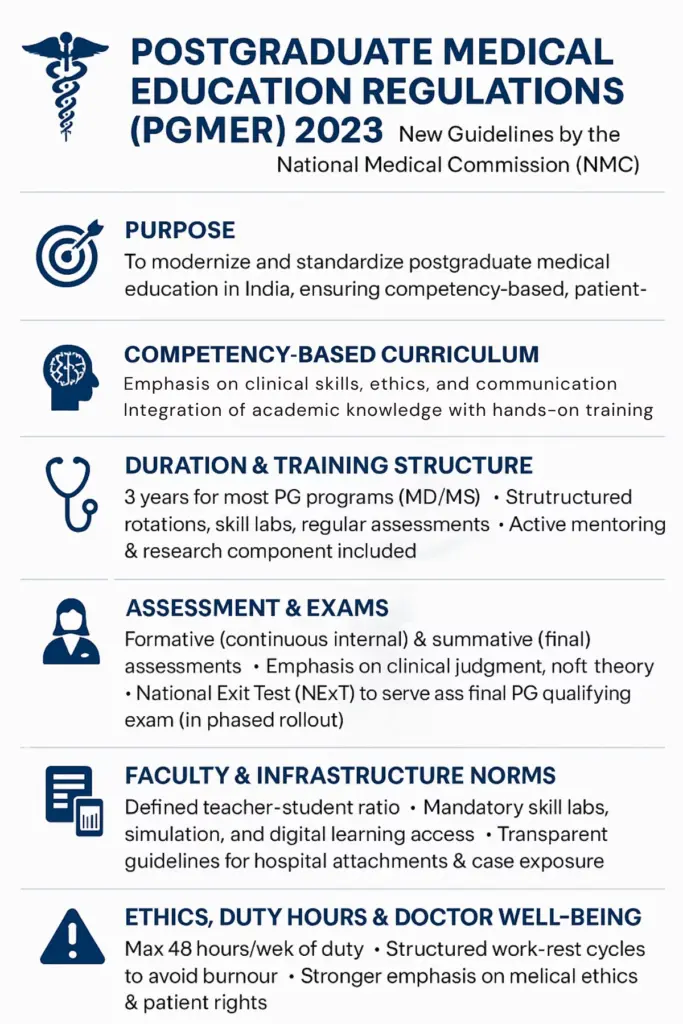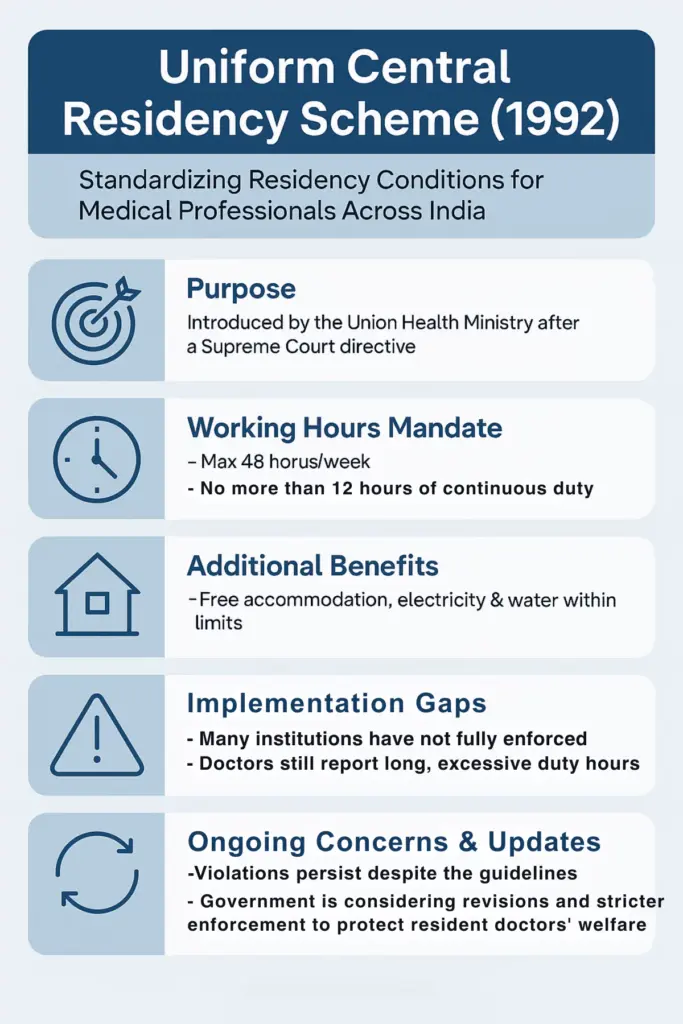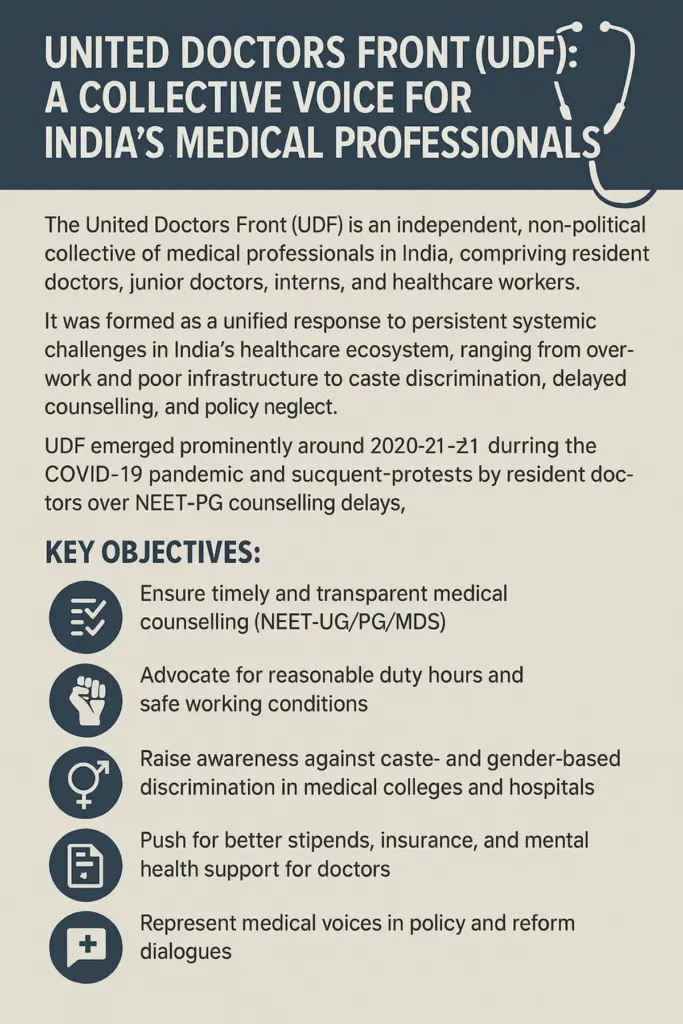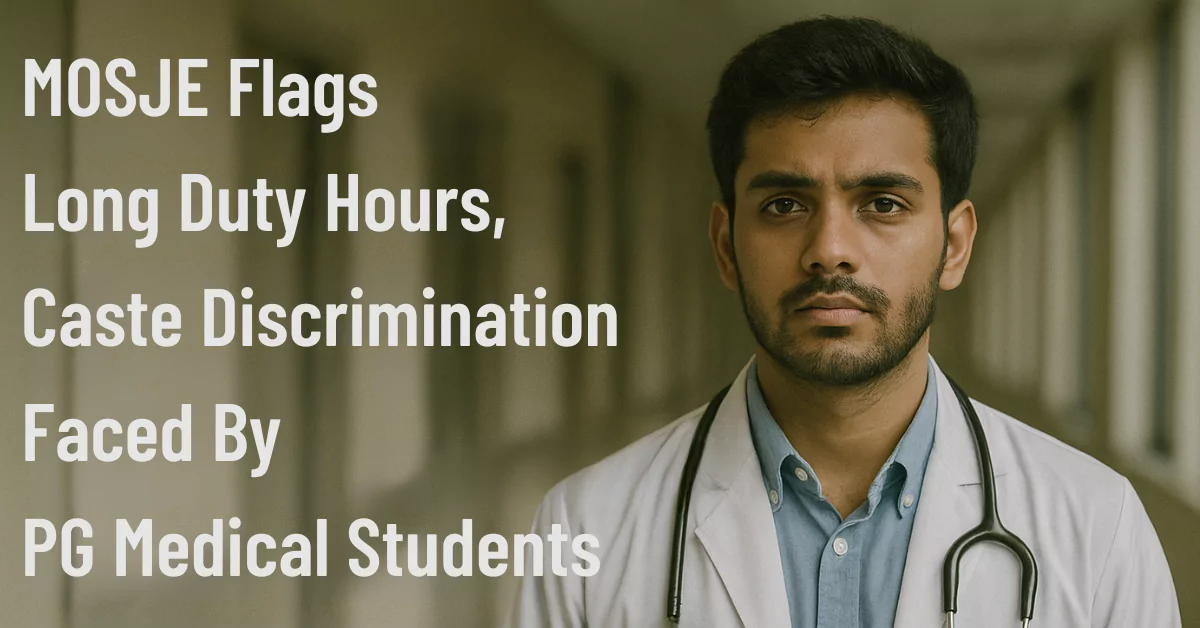News Summary
- Resident doctors are working 36+ hour shifts, violating medical regulations.
- Marginalised PG students face caste-based discrimination and harassment.
- Mental health issues like stress, dropouts, and suicides are rising.
- MoSJE has asked the Health Ministry to take strict action.
- UDF demands reforms and better enforcement by the NMC and DGHS.
The Ministry of Social Justice and Empowerment (MoSJE) has raised concerns about inhuman working conditions and caste-based discrimination faced by PG medical students. In an official notice, the ministry has formally requested the Union Health Ministry to act strictly on issues of long duty hours, caste-discrimination, and mental health neglect across several government medical institutions.
This issue came up when the United Doctors Front (UDF) raised this before the Ministry of Social Justice and Empowerment (MoSJE).
Key Concerns Raised by the United Doctors Front (UDF)
Excessive Duty Hours
Resident doctors routinely work shifts exceeding 36 hours at a stretch, violating the Uniform Central Residency Scheme (1992) and the Postgraduate Medical Education Regulations (PGMER) 2023.

Caste-based Discrimination & Harassment
PG students from marginalized communities, SC, ST, OBC, EWS, and Persons with Disabilities (PwDs) report systemic bias, harassment, and social exclusion, adversely affecting mental well-being and training environments.
Mental Health Crisis
The long shifts and discriminatory work atmosphere are linked to rising cases of mental strain, dropouts, and even suicides among residents.

Lack of Monitoring
Existing safeguards for work hours and anti-discrimination are not being enforced effectively by medical institutions or regulators, prompting calls for action under the RPwD Act 2016.
MoSJE Seeks Action
MoSJE has formally forwarded UDF’s petition to the Ministry of Health & Family Welfare, urging investigations aligned with the Rights of Persons with Disabilities (RPwD) Act 2016. The ministry emphasised that duty-hour violations and caste-based harassment must be addressed under the health ministry’s mandate.
Dr Lakshya Mittal, Chairperson and National President of UDF, welcomed the government’s acknowledgement, asserting:
“This is a small but important step in ensuring justice and dignity for thousands of PG students from vulnerable backgrounds. We urge the Health Ministry & NMC to take immediate corrective action.”
Background & Broader Context
- UDF had previously flagged egregious violations at institutions like AIIMS Bhubaneswar, AFMC Pune, and AIIMS Bibinagar for imposing 24–36 hour continuous duty periods without mandated rest.
- Both the National Medical Commission (NMC) and the Directorate General of Health Services (DGHS) were urged to launch formal inquiries and impose discipline where norms are breached.

Departments’ Responsibility
- Health Ministry: Expected to examine the memo with urgency and initiate oversight mechanisms to enforce work hour stricter compliance and anti-discrimination policies.
- Regulatory Bodies (NMC/DGHS): Anticipated in to investigate institutional violations and enforce penalties under PGMER guidelines.
- Medical Institutions: Must strengthen internal policy implementation, establish fair reporting systems, and ensure rest periods alongside a discrimination-free environment.
This intervention marks an important acknowledgement of the deeper systemic issues confronting resident doctors, exhaustion, caste-based bias, and neglect. The response of the Union Health Ministry, NMC, and DGHS in the coming weeks will determine whether these interventions translate into meaningful reforms for postgraduate medical training in India.

